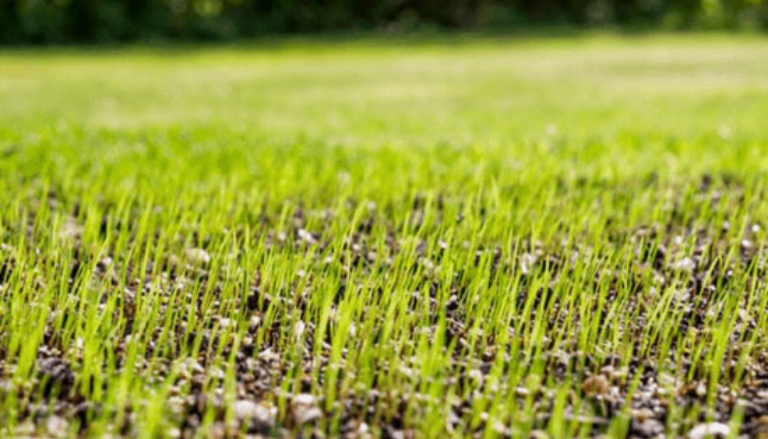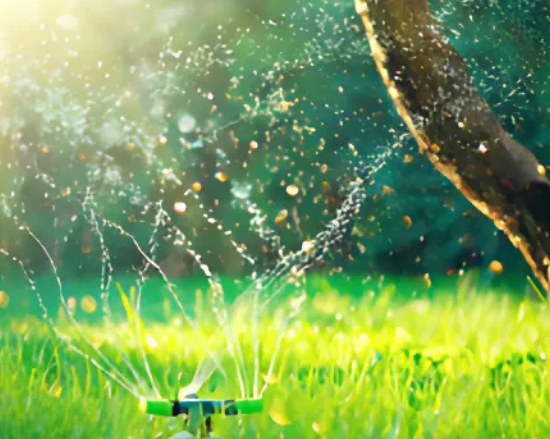Under what circumstances does it make sense to seed?
- To repair damaged areas.
- To increase the density of your lawn.
What does it take for a grass seed to germinate?
Two things are essential: moist soil and warmth!
You must water regularly to keep the soil moist. That being said, it is not necessary to water for long periods of time but rather to increase the frequency of watering.
We suggest that you seed the damaged areas only. Our treatments will take care of the rest.
*One tip we give you is to have a rich soil and mix the seed with potting soil! For this, during the seeding stages I suggest you buy a soil mix (with compost). Nurseries will suggest the best soil to use, whether in bags or in bulk. You just have to tell them the reason why you want to buy the soil. Avoid “cheap” brands as they may contain contaminants (weeds and insects) and if you wish to use bulk soil, do not buy “top soil”.
However, you will need some basic knowledge to avoid mistakes.
You must water regularly to keep the soil moist. That being said, it is not necessary to water for long periods of time but rather to increase the frequency of watering.
We suggest that you seed the damaged areas only. Our treatments will take care of the rest.
*One tip we give you is to have a rich soil and mix the seed with potting soil! For this, during the seeding stages I suggest you buy a soil mix (with compost). Nurseries will suggest the best soil to use, whether in bags or in bulk. You just have to tell them the reason why you want to buy the soil. Avoid “cheap” brands as they may contain contaminants (weeds and insects) and if you wish to use bulk soil, do not buy “top soil”.
However, you will need some basic knowledge to avoid mistakes.
- Using old seed or seed that has experienced unfavourable conditions will greatly reduce your chances of success or even cause your attempt to fail completely.
- Over-watering or under-watering will be a critical factor in the failure of your seeding. In other words, you need constant and adequate watering.
- Putting in seed without putting on soil is a mistake you should not make.
What are the factors for successful seeding?
- You need a good quality soil, ideally with compost.
- Weather conditions in your favour; ideally choose a good time in the season to do this type of work (late April or May).
- Incorporate good quality seeds to your soil in an adequate way. That is to say, mix well and don’t be afraid to put some in.
- You do not need to put too much soil. You simply need to mix your seeds well into the potting soil.
Choice of soil for seeding
What type of soil is ideal for seeding?
For seeding, the key is a soil that combines these properties: a loose soil (that handles well), an absorbent soil and ideally enriched with compost, in other words, the kind of soil we imagine when we think of a good garden soil; soil that is the same or similar to the soil you would use to plant your vegetables or lawn soil.
Type of seed to be used
Choose a seed adapted to the sunny conditions of your yard. For example, for long-lasting results use a full-sun seed for sunny areas or a shade-adapted seed for shady areas. All nursery brands are good for seeding.



